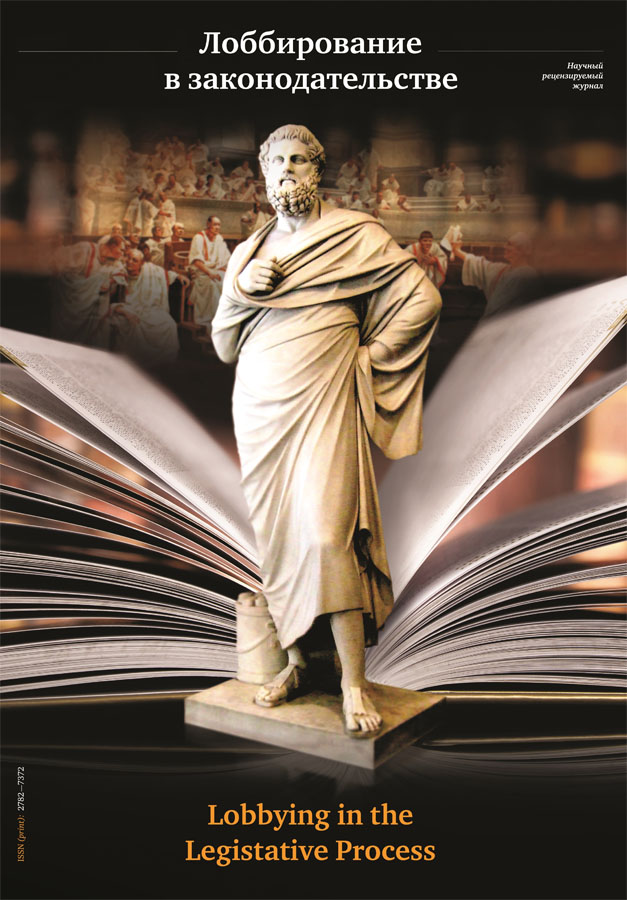On the issue of the sanctions confrontation between the Soviet State and unfriendly countries during the period of industrialization and the Cold War: hunger, grain, lack of food (1917–1991)
- Autores: Belkharoev K.U.1,2
-
Afiliações:
- Saint Petersburg University of the State Fire Service of the EMERCOM of Russia named after Hero of the Russian Federation Army General E.N. Zinichev
- Institute of World Economy and Business of the Peoples’ Friendship University
- Edição: Volume 3, Nº 1 (2024)
- Páginas: 9-14
- Seção: Theory and history law
- URL: https://journals.eco-vector.com/2782-7372/article/view/626713
- DOI: https://doi.org/10.33693/2782-7372-2024-3-1-9-14
- EDN: https://elibrary.ru/ZLAMVG
- ID: 626713
Citar
Texto integral
Resumo
The paper examines the problems of the sanctions confrontation between the Soviet state and unfriendly countries during the period of industrialization and the Cold War. The main periods of aggravation of interstate relations, which contributed to the tightening of mutual restrictive measures, are considered. It is shown that the ongoing reforms and other initiatives of the leadership of Soviet Russia became the reason for the confrontation for many subsequent years, which were initially initiated by England and France. It is revealed that the “golden blockade”, introduced since 1925, turned out to be a heavy burden, having worked out options for exhausting the Soviet government, strategic opponents refused to accept gold as payment for the supplied equipment, machinery and technologies, supplies were carried out only when paying with grain, timber, petroleum products and other raw materials. Due to the past lean seasons in Europe, starting in 1930, Western exporters persistently demanded payment in bread, which subsequently served as the main factor of famine in the USSR (1932–1933). Drought and crop failures in 1931 became tragic for the Soviet people, these circumstances contributed to the loss of the threshold of food security of the country. It has been revealed that the measures introduced by Western countries were directly aimed at stimulating and whipping up protest sentiments in our country, which they tried to use against the Soviet government.
Palavras-chave
Texto integral
Sobre autores
Khadzhimurad Belkharoev
Saint Petersburg University of the State Fire Service of the EMERCOM of Russia named after Hero of the Russian Federation Army General E.N. Zinichev; Institute of World Economy and Business of the Peoples’ Friendship University
Autor responsável pela correspondência
Email: x101010x@yandex.ru
ORCID ID: 0009-0002-3262-0274
Código SPIN: 4483-3853
Candidate of Law, Associate Professor; associate professor at the Department of Theory and History of State and Law; Saint Petersburg University of the State Fire Service of the EMERCOM of Russia named after Hero of the Russian Federation Army General E.N. Zinichev; associate professor at the program “International Economic Security”; Institute of World Economy and Business of the Peoples’ Friendship University
Rússia, Saint Petersburg; MoscowBibliografia
- Voronin B.A., Mitin A.N. Food in the regime of economic sanctions: Managerial and legal analysis. Agrarian Bulletin of the Urals. 2016. No. 12 (154). Pp. 82–88. (In Rus.)
- Ershov P.A. Genesis of import substitution policy in Russia. ECO. 2016. No. 7. Pp. 93–108. (In Rus.)
- Egorov V.G., Litvinova N. Sanctions in the domestic historical process. The Post-Soviet Continent. 2019. No. 3 (23). Pp. 117–135. (In Rus.)
- Lapteva E.V. On the question of the history of anti-Russian sanctions. Historical and Economic Research. 2017. No. 4. Pp. 669–692. (In Rus.)
- Grishin V.I., Grishina O.A., Zhidkikh V.A. et al. Anti-Russian sanctions: History and modernity: Information and analytical bulletin. Moscow: Plekhanov Russian University of Economics, 2016. 92 p.
- Moiseev V.V., Novopavlovskaya E.E., Smolenskaya O.A. Import-independence of the agro-industrial complex of the Belgorod region: History and modernity: Monograph. Belgorod: Publishing house of BSTU. 2023. 281 p.
- Rukinov M.V. Anti-Russian sanctions: Structure and strate gies of counteraction. Managerial Consulting. 2019. No. 6. Pp. 91–101. (In Rus.)
- On the reimbursement by citizens of the USSR traveling abroad for permanent residence of state expenses for training: Resolution of the USSR Council of Ministers of August 03, 1972. No. 573. SP USSR. 1973. No. 1. Art. 4.
- Rabush T.V. US sanctions against the USSR, their results and consequences (for example anti-Soviet sanctions of 1980). Bulletin of SAFU. Series: Humanities and Social Sciences. 2016. No. 6. Pp. 45–53. (In Rus.)
- Any M.V., Bakaeva A.V. Sanctions against the Russian Federation and their consequences. Problems of Economics and Management. 2016. No. 6 (46). Pp. 143–149. (In Rus.)
- On the procedure for departure from the Union of Soviet Socialist Republics and entry into the Union of Soviet Socialist Republics of citizens of the USSR: USSR Law No. 2177-I of May 20, 1991. Vedomosti of the SND and the Armed Forces of the Russian Federation. 1993. No. 1. Art. 19.
- Kazantsev S.V. Anti–Russian sanctions – yesterday and today. ECO. 2015. No. 3 (489). Pp. 63–78. (In Rus.)
Arquivos suplementares









